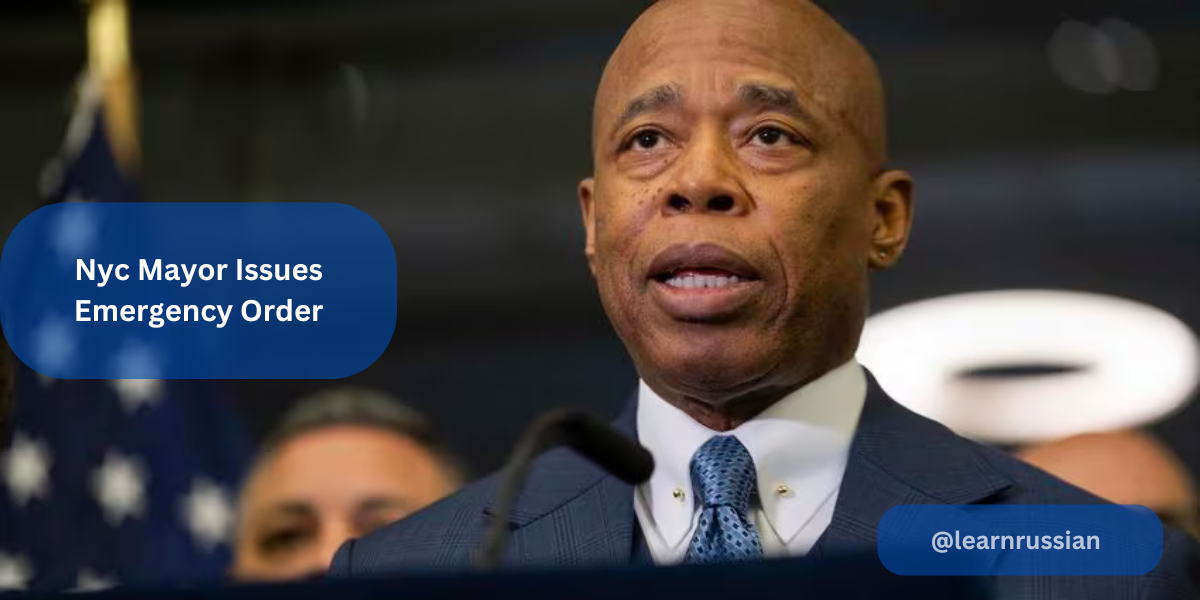New York City Mayor Eric Adams has taken a major step last Saturday when he issued an emergency restraining order, which is a suspension of key provisions in the recently approved bill that aims to reduce the number of people who are in the solitary confinement system in jails of city. The move came just one day before the law is scheduled to go into in. Mayor Adams explained his decision to suspend the law by citing concerns about public safety. He said that the bill “would be risky and expose incarcerated people and their personnel to further dangers of injury.” The decision highlights a major conflict between reformers and city officials over the tension between the rights of human beings and security within correctional institutions.
What is the effect of this Emergency Order Change the Bill?
The order of emergency given from Mayor Adams specifically targets sections in the bill that govern the length of time and conditions when solitary confinement is used. In the beginning, the bill sought to restrict solitary confinement to less than four hours, with the exception of “exceptional situations” and to restrict “restrictive accommodation” up to 30 consecutive days with the maximum of 60 consecutive days over a 12 month period. In addition, it set out to establish stricter guidelines regarding how people are confined and transported.
With the emergency orders in place this restriction is temporarily lifted, allowing to the Department of Corrections (DOC) to return to its previous procedures and the city to reevaluate the security implications of changes being proposed. The emergency order is in effect until 30 days after it is repealed earlier.
What was the purpose of the original Bill?
The law is backed by advocates for prison reform with the intention of reducing their view of the unnecessary and cruel practices of solitary confinement, a method that is widely criticized due to its psychological effects on prisoners. The bill sought to guarantee that the use of solitary confinement occurred only in extreme cases and in strict, controlled restrictions. The law also requires the DOC to publish detailed information regarding the recourse to solitary confinement comprising “de-escalation confinement, restricted housing as well as emergency locking-ins.”
In addition, the bill was designed to improve “due process safeguards” for prisoners, making sure they could have a fair and fair avenue to challenge confinement in an institution or continued usage of restraints.
What has the advocacy community done to respond to Suspension?
Prison reform advocates expressed displeasure and stress regarding the Mayor Adams’ decision defer portions of the law. They claim that the suspension impedes essential changes intended to ensure the physical and mental well-being of prisoners. The bill’s supporters argue that the bill is an important change towards better treatment of prisoners and the end of traditional, harsh confinement methods that are not directly contributing in the rehabilitation process or improve public security.
What are the next Steps to the Bill?
Since the emergency orders are in effect for a short period, the outcome of the legislation governing solitary confinement is dependent on the ongoing discussion and assessment of city officials and other stakeholders. Mayor Adams stated that suspension will allow the city to look at and perhaps amend the law in order to address safety concerns, but without completely abandoning reforms. The next few weeks will be crucial because they will require negotiations as well as possible modifications to the bill in order to come up with a compromise that meets safety needs as well as the need for change.
The DOC is likely to remain in the process of monitoring and reporting about the use of solitary confinement, as well as other practices that are restrictive, offering information that can inform changes to the law. In addition, the public and legal scrutinization will have a significant role in the decision-making process and could have implications for the larger criminal justice reform effort all across the United States.
Conclusion
Mayor Eric Adams’ emergency order is a reflection of the intricate relationship between reforms in criminal justice and the real-world challenges of running municipal jails. Although the suspension has provoked controversy, it also has opened an important discussion regarding the best way to adopt reforms to ensure security and respect for everyone involved. In the meantime, as New York City navigates these difficult waters, the choices taken in the next few days will set the tone in the way solitary confinement and other measures of punishment are handled across the nation’s urban correctional system.

